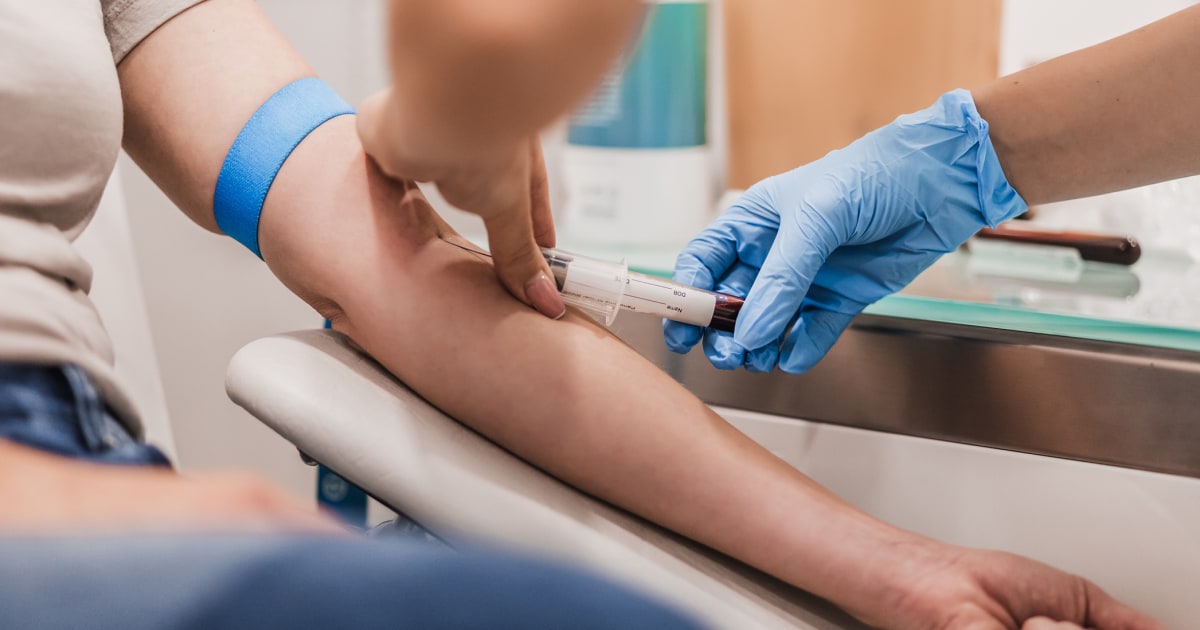Rinvoq (upadacitinib), a Janus kinase (JAK) inhibitor, has emerged as a powerful treatment for seniors with chronic inflammatory conditions like rheumatoid arthritis (RA), psoriatic arthritis (PsA), and ulcerative colitis (UC). For adults aged 65 and older, managing these conditions often requires balancing symptom relief with the risks associated with long-term medication use. Rinvoq’s ability to achieve sustained remission, as demonstrated in 3-year RA clinical trials, offers hope for improved quality of life. However, its serious risks, including lymphoma, blood clots, and cardiovascular events, particularly in seniors, necessitate careful consideration. This article explores Rinvoq’s long-term efficacy, its risks for seniors, the importance of monitoring, and strategies for discussing treatment plans with healthcare providers. Note that Velsipity (etrasimod), a treatment for UC, is not indicated for RA or PsA and has limited data in seniors, so this discussion focuses primarily on Rinvoq.
Rinvoq’s Role in Treating Chronic Conditions
Rinvoq is a once-daily oral medication that suppresses the immune system by blocking JAK enzymes, reducing inflammation responsible for joint pain, swelling, and damage in conditions like RA and PsA. It is FDA-approved for adults with moderate to severe RA, PsA, UC, Crohn’s disease, ankylosing spondylitis, and other inflammatory disorders when tumor necrosis factor (TNF) blockers, like Humira or Enbrel, have failed or are not tolerated. For seniors, who often face debilitating symptoms and comorbidities, Rinvoq’s targeted mechanism offers an alternative to biologics, which require injections.

Clinical trials demonstrate Rinvoq’s efficacy. In RA, phase 3 trials (SELECT program) involving over 4,300 patients showed that 15 mg daily significantly reduced joint pain, swelling, and stiffness by 12 weeks, with some patients experiencing relief within 1 week. Long-term data from a 3-year extension study indicated sustained clinical remission or low disease activity in many patients, with 20% improvement in symptoms when used with conventional synthetic disease-modifying antirheumatic drugs (csDMARDs) like methotrexate. For PsA, Rinvoq improved joint and skin symptoms, while in UC, it achieved remission in adults after 8 weeks of 45 mg induction dosing, followed by 15 mg maintenance. These outcomes are particularly valuable for seniors, as RA affects over 1.3 million Americans, many over 65, causing disability and reduced mobility.
Read more: Is Botox Worth It? Comparing Costs And Results For Forehead And Crow’s Feet
Benefits of Long-Term Rinvoq Use in Seniors
For seniors, Rinvoq’s benefits extend beyond symptom relief to improving daily function and preventing disease progression. Key advantages include:
-
Sustained Remission: The 3-year RA trial data showed that continuous 15 mg Rinvoq treatment maintained remission rates, allowing seniors to manage symptoms long-term. This stability reduces flares, which can be particularly debilitating for older adults with reduced physical resilience.
-
Improved Mobility: By reducing joint inflammation, Rinvoq helps seniors maintain independence, enabling activities like gardening or walking. A patient review on RheumatoidArthritis.net described a 60-year-old woman who, after starting Rinvoq, regained energy and experienced no joint swelling, highlighting its transformative potential.
-
Oral Administration: Unlike biologics, Rinvoq’s oral tablet simplifies treatment for seniors who may struggle with injections or infusions, improving adherence.
-
Rapid Onset: Many patients report symptom improvement within weeks, offering faster relief compared to some DMARDs, which is critical for seniors facing chronic pain.
These benefits make Rinvoq a compelling option for seniors whose conditions have not responded to TNF blockers, potentially delaying irreversible joint damage and enhancing quality of life.
Read more: Dietary Approaches In The Management Of Diabetic Patients With Kidney Disease
Risks of Long-Term Rinvoq Use in Seniors
Despite its efficacy, Rinvoq carries significant risks, particularly for seniors aged 65 and older, due to age-related declines in immune function, liver, and kidney health, as well as higher prevalence of cardiovascular risk factors. The FDA has issued boxed warnings for serious side effects, including:
-
Increased Risk of Cancer: Rinvoq may elevate the risk of lymphoma and other malignancies, such as non-melanoma skin cancer. Clinical studies of another JAK inhibitor showed higher malignancy rates in RA patients over 50 with cardiovascular risk factors, with current or past smokers at greater risk. Seniors, especially those with a smoking history, should discuss skin cancer screenings and limit sun exposure.

-
Blood Clots: Rinvoq increases the risk of deep vein thrombosis (DVT), pulmonary embolism (PE), and arterial thrombosis, particularly in patients over 50 with at least one cardiovascular risk factor (e.g., hypertension, diabetes). In seniors, who often have comorbidities, symptoms like leg swelling or shortness of breath require immediate medical attention.
-
Cardiovascular Events: Major adverse cardiovascular events (MACE), including heart attack and stroke, are more frequent in seniors over 50 with cardiovascular risk factors, especially smokers. A postmarketing study of another JAK inhibitor reported higher MACE rates compared to TNF blockers.
-
Serious Infections: As an immunosuppressant, Rinvoq lowers infection-fighting ability, increasing risks of tuberculosis (TB), shingles, and bacterial or fungal infections. Seniors are more susceptible due to age-related immune decline. Pre-treatment screening for TB and hepatitis B/C is essential.
-
Increased Mortality: Studies of a similar JAK inhibitor showed higher all-cause mortality in RA patients over 50 with cardiovascular risk factors, prompting caution in seniors.
-
Liver and Cholesterol Changes: Rinvoq can elevate liver enzymes (ALT, AST) and cholesterol levels, which may indicate liver damage or cardiovascular risk. Seniors with pre-existing liver or kidney issues face higher risks, and the European Medicines Agency (EMA) advises against Rinvoq use in those with severe liver problems.
Common side effects, affecting over 2% of RA patients, include upper respiratory infections, nausea, cough, fever, acne, headache, weight gain, and elevated creatine phosphokinase. In seniors, these may be more pronounced due to reduced organ function.
Special Considerations for Seniors
Seniors face unique challenges with Rinvoq due to age-related factors:
-
Comorbidities: Conditions like heart disease, diabetes, or chronic lung disease increase risks of MACE, blood clots, and infections. Rinvoq should only be used if no suitable alternatives exist for patients over 65 or with cardiovascular risk factors, per EMA guidelines.
-
Polypharmacy: Seniors often take multiple medications, increasing interaction risks. Rinvoq should not be combined with other JAK inhibitors, biologics, or potent immunosuppressants like azathioprine. Concomitant use with methotrexate or corticosteroids is permitted but requires monitoring.
-
Reduced Organ Function: Impaired liver or kidney function can affect Rinvoq metabolism, necessitating dose adjustments (e.g., 15 mg daily for RA in seniors with kidney damage).
The EMA restricts Rinvoq use in patients over 65 unless no alternatives are available, reflecting heightened risks in this population.
Monitoring Requirements
Regular monitoring is critical to ensure Rinvoq’s safety in seniors. Healthcare providers typically recommend:
-
Blood Tests: Monthly or quarterly tests to monitor cholesterol, liver enzymes (ALT, AST), and blood cell counts (red and white cells) for signs of anemia, neutropenia, or liver damage. Elevated cholesterol may require statins, while significant liver enzyme increases may necessitate dose reduction or discontinuation.

-
Infection Screening: Pre-treatment TB and hepatitis B/C tests, with ongoing vigilance for symptoms like fever, night sweats, or cough. Shingles vaccination is recommended before starting Rinvoq.
-
Cardiovascular and Clot Risk: Regular blood pressure and pulse checks, with prompt reporting of symptoms like chest pain, leg swelling, or shortness of breath.
-
Cancer Screenings: Annual skin checks for non-melanoma skin cancer and discussions about lymphoma risk, especially for smokers.
Seniors should keep all lab appointments to detect changes early, as even minor lab abnormalities can signal serious conditions.
Comparing Rinvoq and Velsipity
Velsipity, a sphingosine-1-phosphate receptor modulator, is approved for moderate to severe UC in adults but not for RA or PsA. Limited data exist on its long-term use in seniors, and its side effects (e.g., bradycardia, infections) differ from Rinvoq’s. Unlike Rinvoq’s broad indications, Velsipity’s role is narrower, making it irrelevant for seniors with RA or PsA. For UC, Rinvoq’s remission data and oral administration may be preferred, but Velsipity could be considered if Rinvoq is contraindicated. Seniors should consult gastroenterologists to compare UC treatments.
Tips for Discussing Rinvoq with Doctors
Effective communication with healthcare providers ensures safe, personalized treatment plans. Seniors can use these strategies:
-
Prepare Questions: Ask about Rinvoq’s benefits versus risks specific to your age, comorbidities, and smoking history. Inquire: “What are my alternatives if Rinvoq’s risks are too high?” or “How will you monitor my cholesterol and liver function?”
-
Share Medical History: Disclose all conditions (e.g., heart disease, cancer history), medications, and lifestyle factors (e.g., smoking). Mention past TNF blocker experiences to justify Rinvoq use.
-
Set Goals: Discuss treatment objectives, such as pain reduction or maintaining mobility, to align Rinvoq with your needs. Ask: “Can Rinvoq help me stay active for daily tasks?”
-
Understand Monitoring: Clarify the frequency of blood tests and symptoms to report immediately (e.g., leg swelling, fever). Request a written monitoring schedule.
-
Explore Alternatives: If risks outweigh benefits, ask about DMARDs (e.g., methotrexate, sulfasalazine), biologics, or non-pharmacologic options like physical therapy.
-
Involve a Rheumatologist: For RA or PsA, consult a specialist to tailor the plan, as they can assess disease activity and adjust doses.
Seniors should also discuss cost, as Rinvoq’s price varies by insurance, and AbbVie’s patient assistance programs (e.g., AbbVie Contigo) may help.
Conclusion
Rinvoq offers significant benefits for seniors with chronic inflammatory conditions, with long-term data showing sustained remission and improved mobility in RA and other disorders. However, its risks—lymphoma, blood clots, cardiovascular events, and infections—are amplified in those over 65, particularly with comorbidities or smoking history. Regular blood tests for cholesterol, liver, and blood cell levels, along with vigilant infection and cancer screenings, are essential for safe use. By preparing informed questions, sharing comprehensive medical histories, and collaborating with rheumatologists, seniors can weigh Rinvoq’s benefits against its risks to create effective, personalized treatment plans. For those with UC, Velsipity may be an alternative, but its role in seniors remains less established. With careful monitoring and open dialogue, Rinvoq can be a valuable tool for managing chronic conditions while prioritizing safety in older adults.










.jpg)


